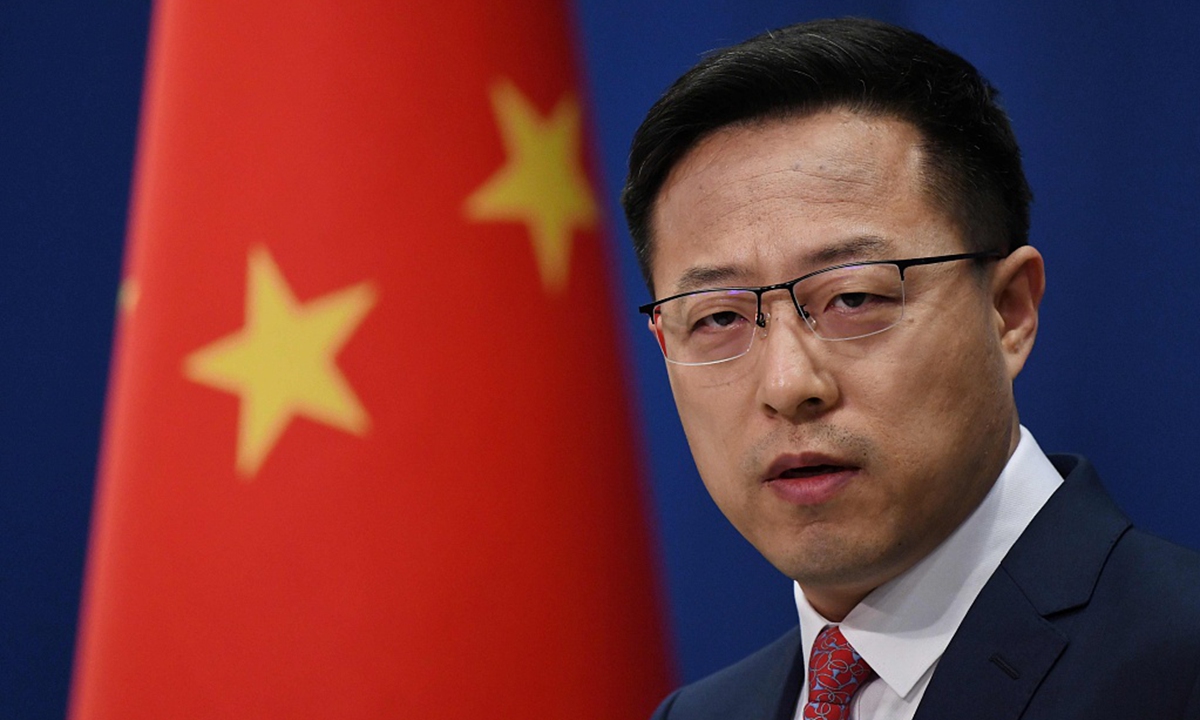
Zhao Lijian
The US is not qualified to lecture China or interfere in Chinese affairs, nor is it qualified to say it deals with China from "a position of strength," Chinese Foreign Ministry spokesperson Zhao Lijian said at a press conference on Friday, referring to US Deputy Secretary of State Wendy Sherman's upcoming visit to China, as analysts noted that the results of her visit depend on US sincerity.
The No.2 diplomat of the US will visit North China's Tianjin from Sunday to Monday where she is expected to meet Chinese State Councilor and Foreign Minister Wang Yi after meeting with Vice Minister Xie Feng.
US State Department said in a press release on Wednesday that the meetings are "part of ongoing US efforts to hold candid exchanges with PRC officials to advance US interests and values, and to responsibly manage the relationship." Sherman will travel to China "from a position of strength," Department spokesperson Ned Price said on the same day.
Zhao stressed that the US touted talking with China "from a position of strength," which reflects the US arrogance and hegemony.
"We didn't accept it in Anchorage, let alone in Tianjin," Zhao said, adding that China will continue to elaborate its principle and stance about developing bilateral ties and firmly safeguard sovereignty and development interests.
In a press briefing on Thursday, Price noted that US relations with China are "predominately competitive" which is the overriding feature. He said there are both adversarial and cooperative aspects in bilateral relations.
Zhao said that the way the US deals with its relations with China is based on competition, cooperation and confrontation, and is actually inciting confrontation and containing China's development.
"The US did not recognize the mainstream and the tributary of China-US relations. Its handling of China-US relations does not fit the fundamental interests of the two peoples or the trend of times. In essence, it is a zero-sum mentality," said Zhao.
Zhang Tengjun, an assistant research fellow at the China Institute of International Studies, told the Global Times on Tuesday that despite US willingness to talk, the US does not show enough sincerity.
"The US speaks to China with a sense of superiority by saying 'from a position of strength.' In such circumstances, China can't accept it. That the US is in a position of strength and China is in a weaker position is a misperception of China-US relations," said Zhang.
Zhang said as China deals with its relations with the US in a more confident and pragmatic manner, it remains to be seen what real actions the US will take to push forward bilateral ties.
"What preparations Sherman and the US government she represents make to pave the way for better China-US ties and what efforts the US is willing to pay are key. Without these, no matter how much the two sides talk, it wouldn't do much for bilateral ties," said Zhang.
Zhang also noted that the atmosphere of the upcoming China-US talks also depends on what Sherman will say during her visit to Japan, South Korea and Mongolia before coming to China.
China announced Friday it will impose sanctions against six individuals and one entity of the US, as a reciprocal countermeasure against the recent erroneous practice of the US targeting Hong Kong.
The sanctions, in accordance with the Anti-Foreign Sanctions Law, come prior to Sherman's China visit. This legal weapon highlights the complexity of the overall struggle between China and the US, according to Chinese analysts.



